Free Display Second floor
Future Observatory display
Discover a new display space dedicated to design research on the environmental crisis curated by Future Observatory, the museum’s national research programme for the green transition.
What to expect
The first display in a series, it showcases six research projects that demonstrate how designers are rethinking and adapting their practice to confront the environmental issues we face and work towards liveable futures.
Visitors learn about a diverse range of research from a variety of design disciplines, from experimental textile dying to radical ideas about the future of building. The display includes solutions to local coastal water pollution, techniques to reduce the environmental impact of textile dying, a mural, and a knitted biohybrid structure composed of fungal mycelium that visitors can walk beneath.
This initiative from Future Observatory signals the importance of placing design at the heart of the green transition, for both the museum and the broader design industry. The space is dedicated to ongoing research, rather than design as finished products or systems.
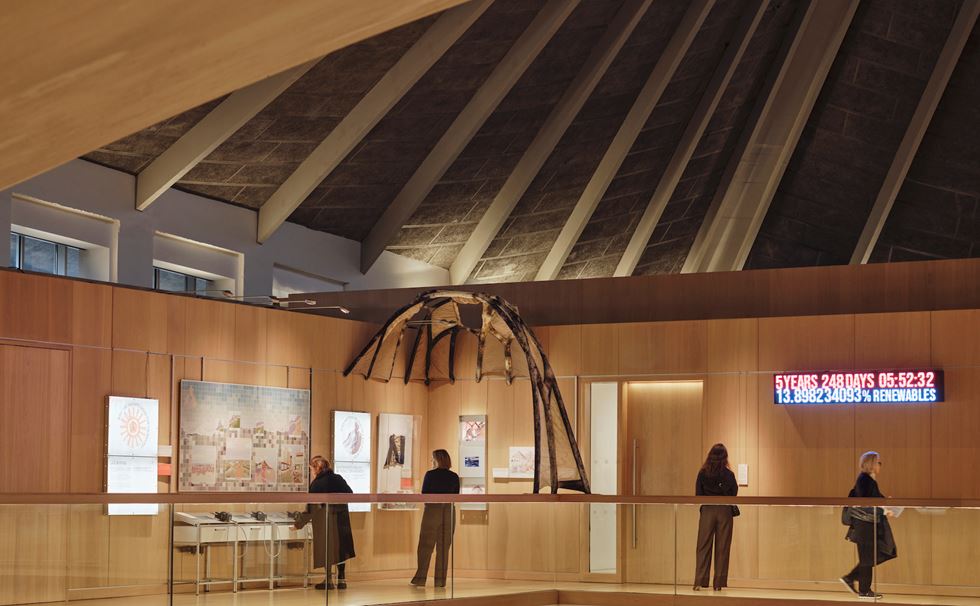
© Felix Speller for the Design Museum
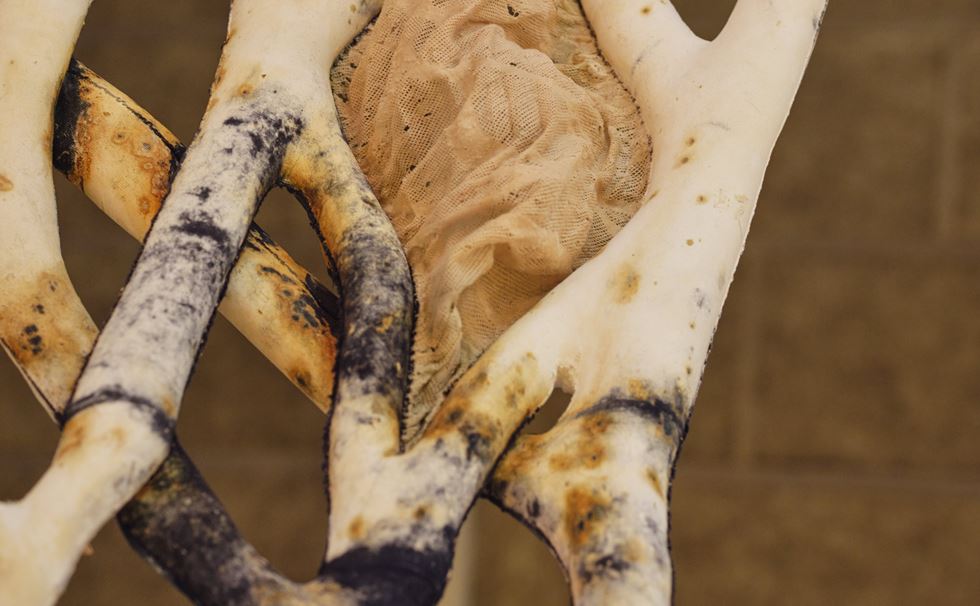
© Felix Speller for the Design Museum
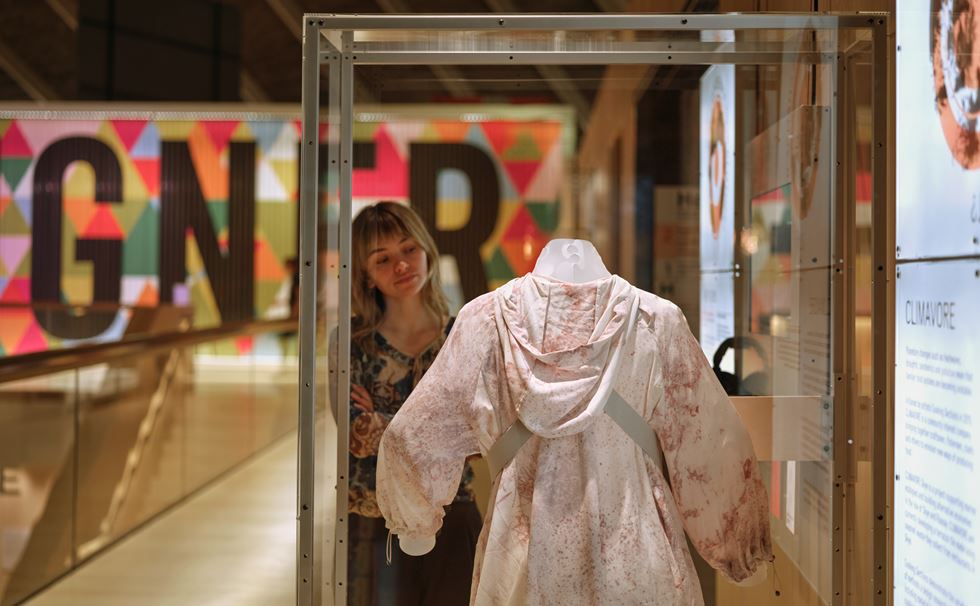
© Felix Speller for the Design Museum
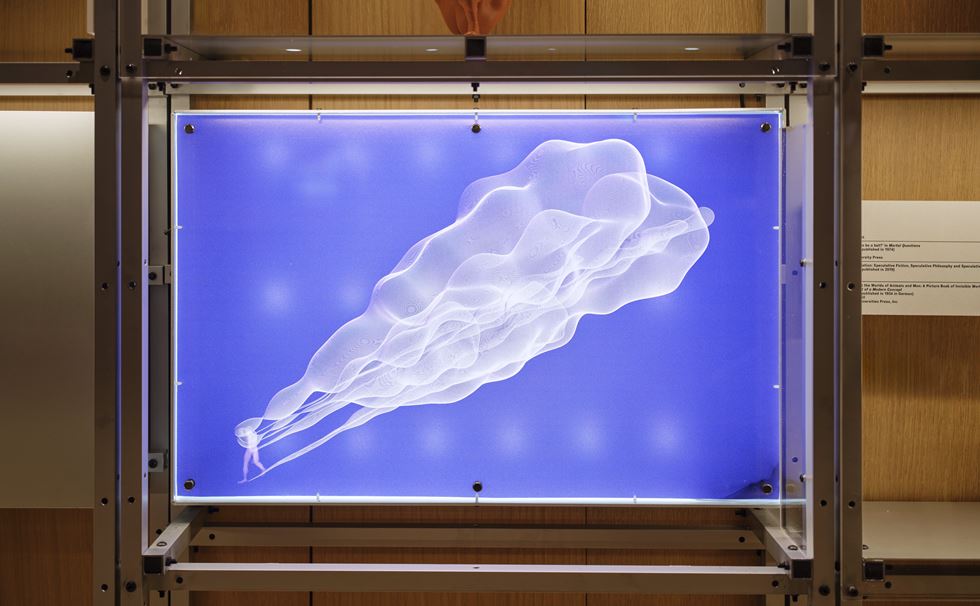
© Felix Speller for the Design Museum
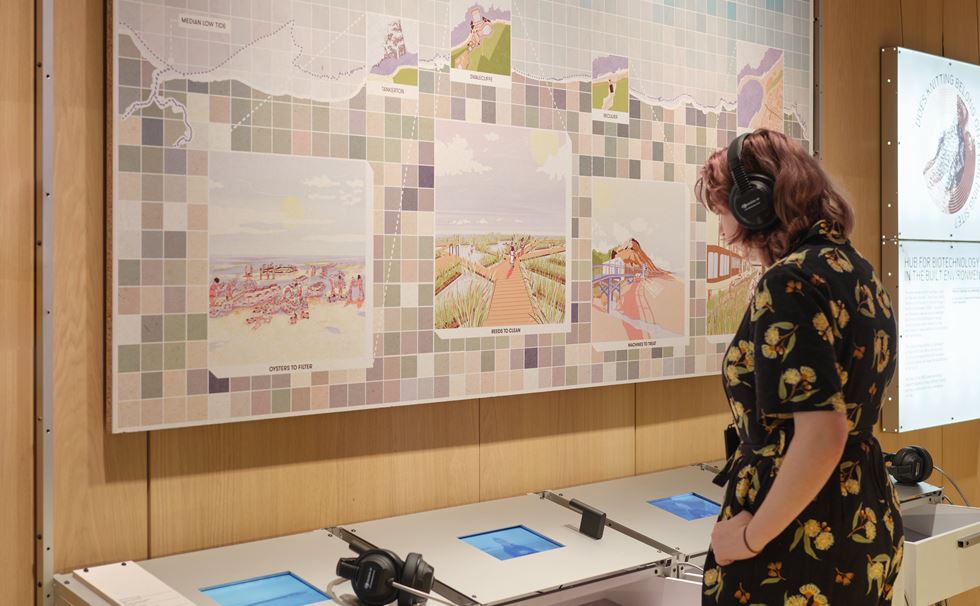
© Felix Speller for the Design Museum
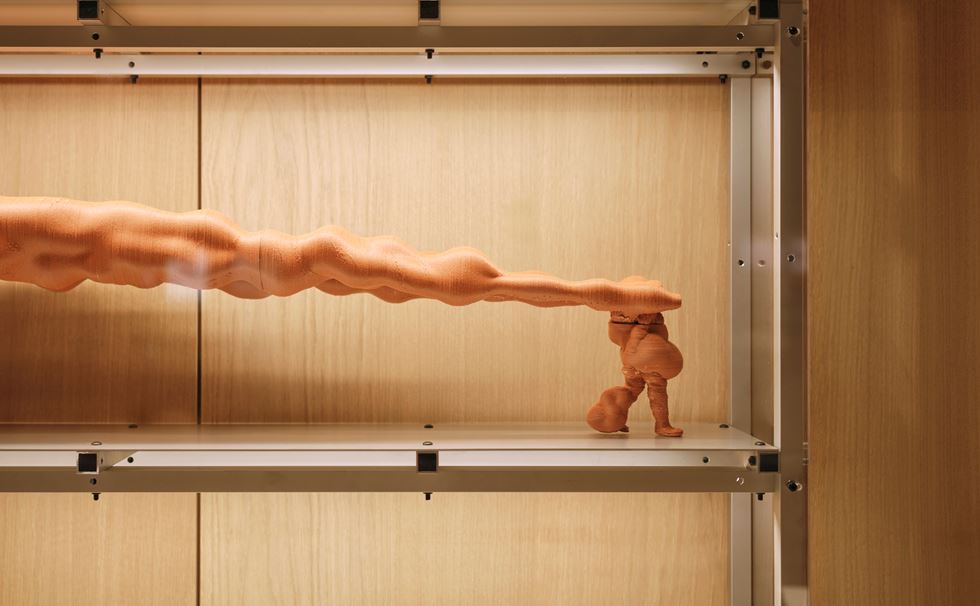
© Felix Speller for the Design Museum
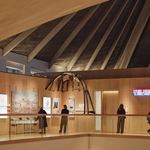
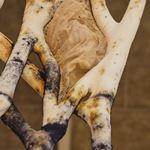
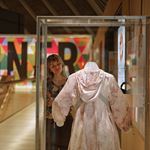
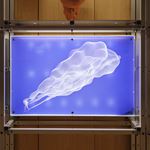
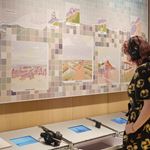
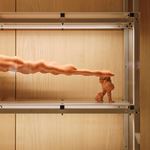
RESEARCHERS
CLIMAVORE
Founded by artists Cooking Sections, CLIMAVORE researches how to adapt our food systems as the climate changes and seasons collapse. They present a mural made with seashells collected from restaurants in the Isle of Skye and reconstituted to form a durable material. The mural shows the potential of waste shells as a low-carbon building material, and to foster a community-led tile production industry in the island.
Dark Matter Labs
Interested in the design of invisible systems that govern our everyday lives, Dark Matter Labs propose a new approach to housing and living with their FreeHouse project. The concept reimagines the home not simply as a piece of property, but as a generator of environmental and social value. Their display includes artefacts that demonstrate this concept in action, allowing us to track its journey and use in the construction of multiple buildings.
Dunne & Raby
Dunne & Raby use design research to shift how we see and understand the world. For the display, they will present a speculative design project that explores how other creatures view the world and the impossibility of inhabiting their perspectives. Light, sound and smells are all perceived by different species in a variety of ways. Their 3D printed sculptures reimagine the human form as if smell and sound could be seen.
Faber Futures
Biodesign agency Faber Futures work with nature to explore ways of reducing the environmental impact of production techniques. They’ve been working with Streptomyces coelicolor, a soil-dwelling bacterium that naturally secretes a pigment that can be used to dye textiles. Visitors can see the results of this technique with the Exploring Jacket, and a film that documents its journey from bacteria cell to fashion product.
HBBE
The Hub for Biotechnology in the Built Environment research new low-carbon materials and construction techniques to rethink how we build. They present ‘BioKnit’, a knitted biohybrid structure made of fungal mycelium, that has been designed using computer modelling to arch across the balcony. Learn about the process of developing this material and building such structures through drawings and footage of the design lab’s work.
Julia King
Architect and design researcher Julia King explores ways to mitigate the impact of water pollution on the north Kent coast. Dangerous amounts of sewage are being dumped into public waterways across the UK: in 2022, only 14% of rivers were of ‘good’ ecological status. Explore King’s research proposals through short films and illustrated maps, which propose solutions such as reintegrating oysters into Whitstable beaches as natural water filters.
Visit information
The display will be open to visitors until August 2024 following the museum's opening hours.
No tickets are required to see our free displays.
Receive Future Observatory news
Future Observatory is a national programme for design research supporting the UK's response to the climate crisis, coordinated by the Design Museum in partnership with the Arts and Humanities Research Council.